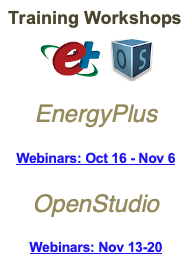Is there any documentation on using python bindings for openstudio measures?
Hi, I am trying to use python bindings for creating, manipulating and running openstudio simulations using openstudio server. This means I will use python bindings for generating a seed model, creating and running openstudio, eneryplus and reporting measures for openstudio and upoading them to openstudio server for simulation. I have created openstudio server locally using the docker container images and used python bindings to create a seed model from scratch. I am not able to find any documentation on how to use python bindings for creating and applying measures on the seed file and creating an OSA file for submitting to openstudio server. Any lead would be appreciated.







There have been previous questions about this. See https://unmethours.com/question/57173... for example.